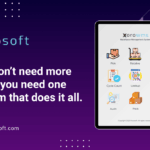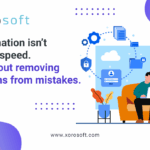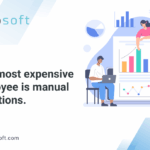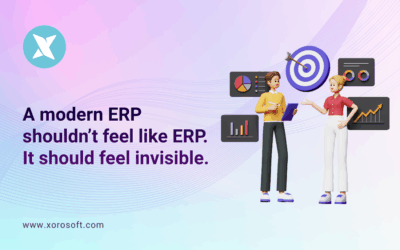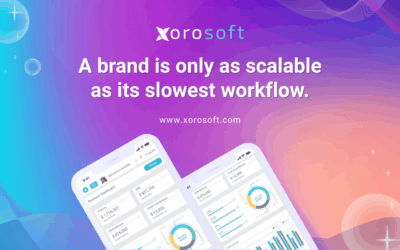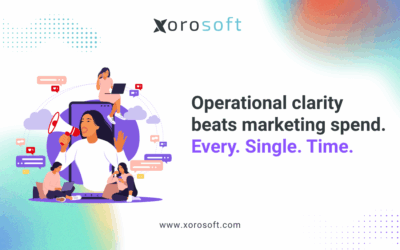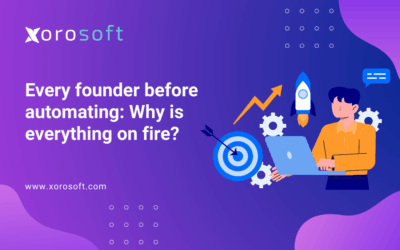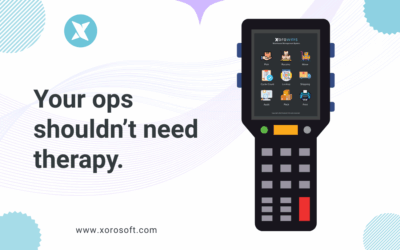
Introduction to ERP Systems and Their Importance for Businesses
ERP systems have become indispensable for businesses of all sizes, revolutionizing the way organizations manage their operations. By integrating various business functions into a single, centralized platform, ERP systems provide a holistic view of the organization, enabling more informed decision-making, improved efficiency, and enhanced productivity. From streamlining inventory management to automating financial processes, ERP systems have become the backbone of modern enterprises, driving growth and ensuring operational excellence.
Understanding Data Security in ERP Systems
At the heart of an ERP system lies a vast repository of sensitive data, including financial records, customer information, employee details, and proprietary business intelligence. Ensuring the security and integrity of this data is paramount, as a breach can have devastating consequences for your business, ranging from financial losses and reputational damage to regulatory fines and legal ramifications.
Data security in ERP systems encompasses a multifaceted approach, involving access controls, encryption, backup and disaster recovery, and comprehensive monitoring and incident response procedures. It is crucial to understand the various components of data security and how they work in tandem to protect your organization’s critical information.
Common Data Security Threats in ERP Systems
ERP systems, like any other technology-driven platform, are susceptible to a range of data security threats. These threats can come from both internal and external sources, and can take various forms, including:
- Unauthorized Access: Malicious actors may attempt to gain unauthorized access to your ERP system, either through stolen credentials, social engineering tactics, or exploiting vulnerabilities in the system’s security protocols.
- Data Breaches: Cybercriminals may target your ERP system to steal sensitive data, such as financial records, customer information, or intellectual property, for their own nefarious purposes.
- Ransomware and Malware Attacks: Malicious software can infiltrate your ERP system, locking or encrypting your data, and demanding a ransom payment in exchange for its release.
- Internal Threats: Disgruntled employees or insiders with malicious intent may attempt to sabotage your ERP system or steal valuable data.
- Natural Disasters and Hardware Failures: Physical threats, such as natural disasters or hardware failures, can lead to the loss or corruption of critical data stored within your ERP system.
Understanding these common threats is the first step in developing a robust data security strategy for your ERP system.
Best Practices for Securing Your ERP System
To safeguard your business against the various data security threats in ERP systems, it is essential to implement a comprehensive set of best practices. These include:
- Access Control and User Management: Implement stringent access control measures, such as multi-factor authentication, role-based access, and regular password updates, to prevent unauthorized access to your ERP system.
- Data Encryption: Ensure that all sensitive data stored and transmitted within your ERP system is encrypted, providing an additional layer of protection against data breaches.
- Backup and Disaster Recovery: Establish a reliable backup and disaster recovery plan to ensure the availability and recoverability of your ERP data in the event of a system failure or natural disaster.
- Continuous Monitoring and Incident Response: Implement robust monitoring and incident response procedures to detect and address any suspicious activities or potential security breaches in a timely manner.
- Employee Training and Awareness: Educate your employees on best practices for data security, including recognizing and reporting potential threats, to create a culture of cybersecurity within your organization.
- Regular System Updates and Patches: Regularly update your ERP system with the latest security patches and software updates to address known vulnerabilities and mitigate emerging threats.
Choosing the Right ERP Solution with Robust Data Security Features
When selecting an ERP solution for your business, data security should be a top priority. Carefully evaluate the security features and capabilities of the ERP vendors you are considering, ensuring that they align with your organization’s specific security requirements. Look for ERP solutions that offer:
- Advanced Access Controls: Robust user authentication, role-based access management, and comprehensive audit logging capabilities.
- Robust Encryption: End-to-end data encryption, both at rest and in transit, to protect your sensitive information.
- Comprehensive Backup and Disaster Recovery: Reliable backup mechanisms and disaster recovery plans to ensure the availability and recoverability of your ERP data.
- Continuous Monitoring and Threat Detection: Sophisticated security monitoring, threat detection, and incident response capabilities to identify and address security breaches in a timely manner.
- Regulatory Compliance: Adherence to industry-specific data security and privacy regulations, such as GDPR, HIPAA, or PCI-DSS, depending on your business requirements.
Overview of Xorosoft ERP and Its Data Security Capabilities
At Xorosoft, we understand the critical importance of data security in ERP systems. Our Xorosoft ERP solution is designed with robust security features and capabilities to safeguard your business-critical information.
Some of the key data security features of Xorosoft ERP include:
- Multi-layered Access Controls: Xorosoft ERP offers advanced user authentication, including multi-factor authentication and role-based access management, to ensure that only authorized personnel can access sensitive data and perform specific actions within the system.
- Comprehensive Data Encryption: All data stored and transmitted within the Xorosoft ERP system is encrypted using industry-standard encryption algorithms, providing an additional layer of protection against data breaches.
- Secure Cloud Infrastructure: Xorosoft ERP is hosted on a secure cloud infrastructure, which is regularly monitored and updated to address emerging security threats, ensuring the highest levels of data protection.
- Backup and Disaster Recovery: Xorosoft ERP includes robust backup and disaster recovery capabilities, enabling you to quickly restore your critical data in the event of a system failure or natural disaster.
- Continuous Monitoring and Incident Response: Our dedicated security team continuously monitors the Xorosoft ERP system for any suspicious activities or potential security breaches, and is ready to respond promptly to mitigate any threats.
- Regulatory Compliance: Xorosoft ERP is designed to meet the stringent data security and privacy requirements of various industries, including healthcare, finance, and government, ensuring that your organization remains compliant with relevant regulations.
Protecting Your Inventory Management System in Your ERP
Inventory management is a critical component of any ERP system, as it directly impacts your organization’s operational efficiency and financial performance. Ensuring the security of your inventory data is paramount, as any breaches or disruptions can have far-reaching consequences, such as stock shortages, financial losses, and reputational damage.
Within the Xorosoft ERP system, we have implemented robust security measures to protect your inventory management data, including:
- Access Controls: Granular user permissions and role-based access controls ensure that only authorized personnel can view, modify, or interact with your inventory data.
- Data Encryption: All inventory-related data, including stock levels, product details, and transaction history, is encrypted both at rest and in transit, providing an additional layer of protection against unauthorized access.
- Audit Logging: Comprehensive audit logging tracks all changes and activities within the inventory management module, enabling you to monitor and investigate any suspicious behavior.
- Backup and Disaster Recovery: Regular backups and a reliable disaster recovery plan ensure that your inventory data can be quickly restored in the event of a system failure or natural disaster.
- Automated Alerts and Notifications: Xorosoft ERP’s security monitoring capabilities generate real-time alerts and notifications, informing you of any potential security breaches or anomalies within your inventory management system.
Ensuring Data Security in Your ERP’s Accounting Module
The accounting module within your ERP system is the repository for your organization’s most sensitive financial data, including transactions, payroll information, and financial reports. Securing this data is of utmost importance, as a breach can have severe financial and legal consequences.
Xorosoft ERP’s accounting module is designed with robust data security features to protect your critical financial information, including:
- Segregation of Duties: Granular user permissions and role-based access controls ensure that no single user has complete control over the accounting processes, reducing the risk of fraud or unauthorized transactions.
- Audit Trails and Reporting: Comprehensive audit logging and reporting capabilities allow you to track and monitor all financial transactions and activities, enabling you to quickly identify and investigate any suspicious behavior.
- Encryption and Access Controls: All financial data stored within the Xorosoft ERP accounting module is encrypted, both at rest and in transit, and is accessible only to authorized personnel.
- Backup and Disaster Recovery: Regular backups and a robust disaster recovery plan ensure that your accounting data can be quickly restored in the event of a system failure or natural disaster, minimizing the impact on your financial operations.
- Regulatory Compliance: Xorosoft ERP’s accounting module is designed to meet the stringent data security and privacy requirements of various financial regulations, such as GAAP, IFRS, and SOX, ensuring that your organization remains compliant.
The Role of Xorosoft in Providing Reliable and Secure ERP Solutions
At Xorosoft, we are committed to delivering reliable and secure ERP solutions that empower businesses to thrive in the digital age. Our deep understanding of data security challenges, coupled with our expertise in ERP technology, has enabled us to develop a comprehensive suite of security features and best practices that are integrated into the Xorosoft ERP platform.
We take a proactive approach to safeguarding your business-critical data. From implementing advanced access controls and encryption protocols to establishing robust backup and disaster recovery procedures, we ensure that your ERP system is equipped to withstand the evolving landscape of cyber threats.
Moreover, our team of security experts continuously monitors the Xorosoft ERP system, quickly identifying and addressing any potential vulnerabilities or security incidents. This vigilance, combined with our commitment to regular software updates and the incorporation of the latest security standards, allows us to provide you with the peace of mind that your data is secured to the highest degree.
Conclusion: Taking Proactive Steps to Safeguard Your Business Data in ERP Systems
In today’s digital landscape, the security of your business data within ERP systems has become a critical imperative. As you navigate the complex world of data protection, it is essential to adopt a comprehensive and proactive approach to safeguarding your organization’s sensitive information.
Book a Demo with Xorosoft to learn more about how our secure ERP solution can help safeguard your business data and drive your organization’s growth.


